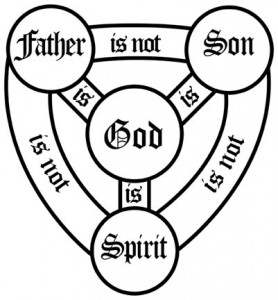 Pastor John, I am studying the Doctrines of Grace, but am struggling with the concept of the “L” in the TULIP, namely “Limited Atonement” because Hebrews 2:9 says that Jesus tasted death for everyone. Does this not refute the idea or you able to explain this verse?
Pastor John, I am studying the Doctrines of Grace, but am struggling with the concept of the “L” in the TULIP, namely “Limited Atonement” because Hebrews 2:9 says that Jesus tasted death for everyone. Does this not refute the idea or you able to explain this verse?
Thanks for your question. I can understand your struggle as I also found the “L” doctrine the most difficult one to grasp. That is not because the Bible is unclear. I don’t believe that is the case at all. My problem was that I was reading the Bible with a traditional lens, so to speak. Thankfully, what was once fuzzy to me is now extremely clear. Christ is a powerful and perfect Savior!
The whole issue revolves around what exactly was in the mind of God from all eternity in the cross of Christ. In sending His Son to die on the cross, what was God’s intention? Was He merely trying to save as many people as He could, hoping that somone would take Him up on the offer, or was He actually securing salvation for those He chose to redeem?
The answer, I believe, is that God intended to save all His elect people and achieved this through the death of Christ. Rather than being sad for all eternity that so many refused Him, God accomplished everything He set out to do. It is a mistaken idea to think that those who will make up the numbers in hell were every bit redeemed as the occupants of heaven, but their sin of unbelief prevented them from enjoying eternity with God. Such would make Christ a dejected Savior for all eternity, for if His blood truly purchased their redemption, and He removed God’s wrath from them (propitiation) it is indeed scandalous that wrath be poured out on these same people again in hell. That would be double jeopardy, a double payment for sin.
When we look at what Scripture says that Jesus actually achieved by His death, Revelation 5:9 tells us that the heavenly host sing to the Lamb, “by your blood you ransomed people for God from every tribe and language and people and nation.”
This gives us great insight. Notice that the text does not say that He ransomed everyone IN every tribe and language and people and nation but specific people in each tribe, tongue, people group and nation. This speaks of an actual atonement; one without distinction rather than one without exception.
Christ died not merely to make a potential or hypotethical atonement that would only be made effective by man’s response, but He actually removed God’s wrath forever (full propitiation) and provided an actual or definite atonement for the people of God. In doing this He fulfilled the prophecy that He would “save His people from their sins.” (Matthew 1:21)
When someone describes themselves as a four point Calvinist it is almost always “Limited Atonement” where they have an issue. Reformed people often refer to these folk as “Christmas Calvinists.” Why?
No “L.” (Noel, Noel!! – ha ha)
Well, much more could be said but to answer your question, we can isolate the phrase “taste death for everyone,” taking it out of its setting (which many do without even realising it, which is of course, the very essence of tradition), OR we can allow the greater context to explain the meaning.
Actually, as I have explained elsewhere, whenever we find words such as “all” “every” or “everyone” in Scripture, the correct meaning is understood by the context. Sometimes it means each and everyone on earth, all in human history, past, present and future, but actually that is an extremely rare use of these terms.
This is true in all language use. In English, for example, when a teacher in a classroom asks “are we all here?” he/she is not asking if everyone on planet earth is in the room, but the students signed up for the class. Similarly, if a mother with seven kids gets in the car and before setting off for the grocery store looks behind her drivers’ seat at her children and asks “is everyone in?” we immediately understand she is enquiring about the location of all her children (asking to make sure none of them are missing) rather than everyone in this world.
So regarding Hebrews 2:9, the very next verses (v. 10, 11) explain who the “everyone” is. Here’s the text:
Hebrews 2:9 But we see him who for a little while was made lower than the angels, namely Jesus, crowned with glory and honor because of the suffering of death, so that by the grace of God he might taste death for everyone. 10 For it was fitting that he, for whom and by whom all things exist, in bringing MANY SONS TO GLORY, should make the founder of THEIR SALVATION perfect through suffering. 11 For he who sanctifies and THOSE WHO ARE SANCTIFIED all have one source. That is why he is not ashamed to call THEM BROTHERS.
The “everyone” are ‘everyone’ of the many sons Christ brings to glory (notice He does not merely try to bring them to glory, He actually does so), whom He sanctifies by tasting death for them and whom He calls brothers. He is the founder of their salvation. His death for everyone of these many sons, brought them all the way to glory, He sanctified them (set them apart as holy) by this death and rather than merely calling them potential brothers, He actually secured their membership in the family of God. Because of His death on their behalf, He is not ashamed to call these many sanctified sons, brothers.
This once again illustrates the value of context in determining the correct meaning of a verse or passage. Whenever we come across words such as “all,” “every” or “everyone,” we should make it a rule to carefully examine the immediate context where these phrases are found. When we take time to do so, the meaning will become clear.
 I am pleased to announce today that this blog is now partnering with through the wonders of technology, the missionalwear site will recognize that you got to that site because my banner led you there and (wonder of wonders) a small percentage of the sale comes back to me by way of commission.
I am pleased to announce today that this blog is now partnering with through the wonders of technology, the missionalwear site will recognize that you got to that site because my banner led you there and (wonder of wonders) a small percentage of the sale comes back to me by way of commission.
 Deuteronomy 7:6 “For you are a people holy to the LORD your God. The LORD your God has chosen you to be a people for his treasured possession, out of all the peoples who are on the face of the earth. 7 It was not because you were more in number than any other people that the LORD set his love on you and chose you, for you were the fewest of all peoples, 8 but it is because the LORD loves you and is keeping the oath that he swore to your fathers, that the LORD has brought you out with a mighty hand and redeemed you from the house of slavery, from the hand of Pharaoh king of Egypt.
Deuteronomy 7:6 “For you are a people holy to the LORD your God. The LORD your God has chosen you to be a people for his treasured possession, out of all the peoples who are on the face of the earth. 7 It was not because you were more in number than any other people that the LORD set his love on you and chose you, for you were the fewest of all peoples, 8 but it is because the LORD loves you and is keeping the oath that he swore to your fathers, that the LORD has brought you out with a mighty hand and redeemed you from the house of slavery, from the hand of Pharaoh king of Egypt. Heresy is not a victimless crime. Theology matters!
Heresy is not a victimless crime. Theology matters! Dr. David Murray, is the Professor of Old Testament and Practical Theology at Puritan Reformed Theological Seminary. He lives in Grand Rapids with his wife, Shona, and four children.
Dr. David Murray, is the Professor of Old Testament and Practical Theology at Puritan Reformed Theological Seminary. He lives in Grand Rapids with his wife, Shona, and four children. “I have been found by those who did not seek me; I have shown myself to those who did not ask for me.” – Romans 10:20
“I have been found by those who did not seek me; I have shown myself to those who did not ask for me.” – Romans 10:20 “May I never boast except in the cross of our Lord Jesus Christ.” – Galatians 6:14
“May I never boast except in the cross of our Lord Jesus Christ.” – Galatians 6:14 Pastor John, I am studying the Doctrines of Grace, but am struggling with the concept of the “L” in the TULIP, namely “Limited Atonement” because Hebrews 2:9 says that Jesus tasted death for everyone. Does this not refute the idea or you able to explain this verse?
Pastor John, I am studying the Doctrines of Grace, but am struggling with the concept of the “L” in the TULIP, namely “Limited Atonement” because Hebrews 2:9 says that Jesus tasted death for everyone. Does this not refute the idea or you able to explain this verse?